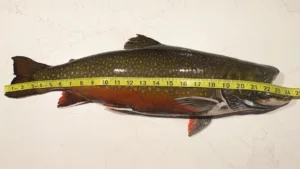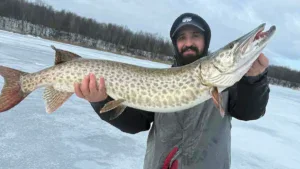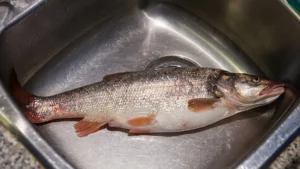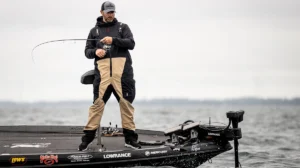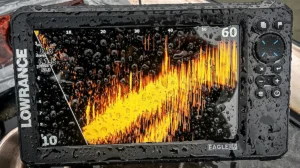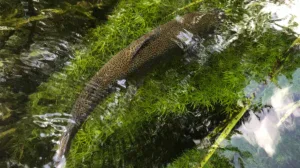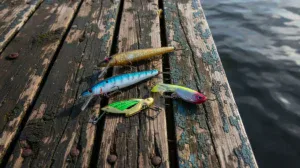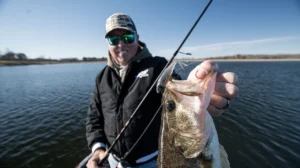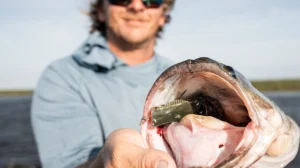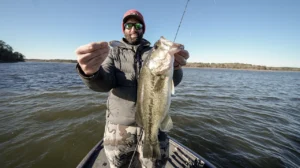Biologists with the Maine Department of Inland Fisheries and Wildlife (MDIFW) confirmed the illegal introduction of largemouth bass into West Musquash Lake earlier this month, after a local fishing guide sent regional biologists a photo of his young son holding a largemouth bass over Independence Day weekend. The presence of largemouth bass threatens the lake’s native brook trout and landlocked salmon, two cold-water species that have lived there naturally for generations and are becoming increasingly rare in parts of Maine.
“He knew largemouth bass weren’t supposed to be there,” communications director for the MDIFW Mark Latti tells Wired2Fish. “Once we saw the photo, we got a crew together.”
On July 9, two electrofishing boats surveyed the lake. MDIFW confirmed not just one rogue bass, but multiple year classes, which was evidence of an established, breeding population.
West Musquash spans more than 1,600 acres in Washington County and is home to a unique wild fishery. It supports native brook trout and landlocked salmon populations. It is also the only lake in the region with round whitefish, which Latti believes are similarly imperiled.
“Tragically, this could lead to the elimination of that native fishery,” Latti says. “Largemouth bass lay more eggs than trout and prey on trout and salmon fry, negatively impacting, and potentially eliminating, this native fishery.”
Maine is one of the last strongholds for wild eastern brook trout and has some of the best remaining native landlocked salmon populations in the country. Unfortunately, illegal stocking is the number one threat to Maine’s native fisheries, and the effects are irreversible, according to Latti.

To rule out natural migration, MDIFW biologists electrofished upstream lakes and hiked an outlet stream to Big Lake, which sits southeast of West Musquash and holds both smallmouth and largemouth bass. What they found was a mile-and-a-half stretch of fast, rugged water with many falls and ledges that has blocked fish movement for more than a century.
“We do not believe that largemouth bass could have made it through that natural barrier,” Latti says. “Smallmouth bass are stronger swimmers, and they haven’t been able to get through.”
That means the most logical explanation for the presence of largemouth bass in West Musquash is that someone illegally put them there.
Illegal stocking in Maine is a Class E crime, punishable by fines of up to $10,000 and a potential 10-year license suspension. And under a new law signed by Gov. Janet Mills in June, offenders can also be ordered to pay the full cost of fishery mitigation or reclamation.
A $6,000 reward is being offered by Maine Operation Game Thief and the Grand Lake Stream Guides Association for information leading to the arrest and conviction of whoever released the bass into West Musquash Lake.
“It is the largest reward we have ever had for a fisheries crime,” Latti says.
MDIFW is also taking immediate management steps. A new emergency rule will remove all size and bag limits on bass in West Musquash. An educational campaign will encourage anglers to remove and kill any bass they catch in the lake.
If you have information about the illegal introduction of largemouth bass into West Musquash Lake, contact Operation Game Thief at 1-800-ALERT-US or submit a tip online. All reports are confidential.


